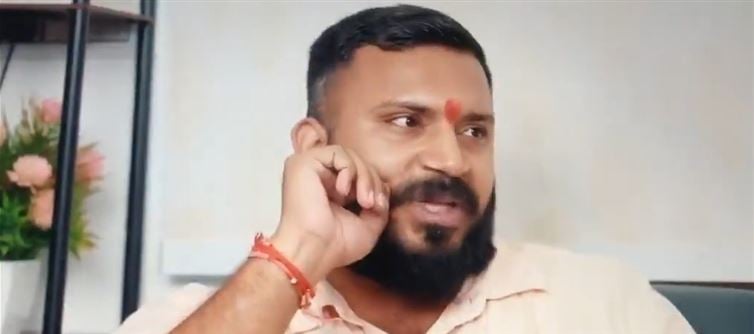
Imagine this: a man with millions of followers openly tells his supporters to surround the Chief Justice of India’s car, to spit on his face, to incite direct hostility against the nation’s top judge. Days later, the CJI is attacked. And yet — the man who planted the seed of violence still walks free, ranting, tweeting, and smiling at the camera. Meanwhile, peaceful activists like Sonam Wangchuk are slapped with the NSA and thrown behind bars for… protests. If this doesn’t scream selective justice, what does?
1. From Words to Violence: The Ajit Bharti Playbook
Ajit Bharti didn’t just “criticize” the judiciary. He called for action. Surrounding the CJI’s car? Spitting on his face? These are not metaphors. They are clear, direct calls to humiliate and physically threaten the Chief Justice of India. When words like these are spoken in a charged ecosystem, violence is not a possibility — it’s an inevitability.
2. The Attack That Proves It All
Days after his tirades, an attack takes place on CJI Gavai. Cause and effect have never looked more blatant. You don’t need Sherlock Holmes to draw the line between instigation and outcome. And yet, we’re expected to believe this is just a “coincidence.”
3. The Great Double Standard
When Sonam Wangchuk holds a protest or speaks about Ladakh’s rights, he’s branded a threat to national security and slapped with the National Security Act (NSA). Peaceful dissent becomes “sedition.” But Ajit Bharti — who literally incited violence against the highest seat of justice — faces no handcuffs, no summons, no accountability. If this isn’t the dictionary definition of hypocrisy, what is?
4. A Dangerous Precedent for Democracy
If an attack on the Chief Justice of india, following public calls for violence, still doesn’t lead to action against the perpetrators, what message are we sending? That threats against the judiciary are negotiable? That inciting mobs is acceptable if your ideology matches the ruling power? This isn’t just about Ajit Bharti — it’s about the slow, public dismantling of justice itself.
5. The Silence That Screams
Every day, Ajit Bharti roams free after this episode, the silence of law enforcement becomes louder. It tells citizens that violence pays, that provocation is legal, and that selective justice is the new normal. And if the Chief Justice isn’t safe, what hope does the common citizen have?
🔥 Bottomline: The system that preaches law and order is now rewarding those who spit on its very face. If Ajit Bharti isn’t arrested for inciting violence against the Chief Justice, then “justice” in india is nothing more than a performance — brutal for some, blind for others, and a complete joke for all.




 click and follow Indiaherald WhatsApp channel
click and follow Indiaherald WhatsApp channel